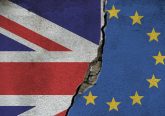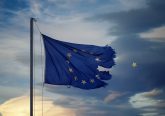The Queen’s speech announced a new Digital Economy Bill. One of the main measures is to mandate a minimum broadband speed of 24Mbps for at least 95 per cent of UK homes and universal service obligation minimum of 2Mbps. It is proposed that funding for this will come from an industry levy. Any broadband subsidy under the BDUK programme is subject to EU state aid rules particularly if disputed by the private sector (as previously) or could be challenged under WTO countervailing measures in the future if Brexit occurs and the UK does not participate in the Single Market. The bill is also to introduce a new Electronic Communications Code to reduce the ability of landowners to overcharge for laying broadband infrastructure. However, the last time the government attempted to curb excessive charging in amendments to the 2015 Infrastructure Bill, the proposal failed due to protest from landowners.
The bill also will also require the mandating of age verification for access to websites e.g. containing pornographic material which implements part of the EU’s General Data Protection Regulation. The bill’s proposal for consent for direct marketing to protect citizens from spam emails and nuisance calls is also a part of the Regulation’s implementation. The Information Commissioner will inherit more powers to fine those circumventing consent. Indeed, the UK is proposing that the EU additionally require that direct marketing callers provide Calling Line Identification. This is in anticipation of a change to the EU’s Privacy and Electronic Communications (EC Directive) Regulations within the coming year.
Lastly, copyright will be strengthened. It is unclear as to how the government intends to tackle this. However, this will become apparent once it responds to consultations on proposals to amend the EU’s copyright Directives in the autumn of this year. In this respect, the UK is tied to wider international agreements on copyright and intellectual property such as the WIPO Copyright Treaty and the Agreement on Trade-Related Aspects of Intellectual Property Rights (TRIPS). In its last attempt to curb piracy in the 2010 Digital Economy Act, the government was successfully challenged by large private sector groups. Current global trends signal a move away from statutory obligations on copyright towards industry self-regulation via standard adoption for web browsers. For example, browsers are being asked to integrate digital rights management (DRM) software into browsers through Common Encryption (CENC) and Encrypted Media Extensions (EME). For example, Google’s Widevine DRM could be integrated into the Chrome browser or Microsoft PlayReady to Internet Explorer and so on. This may lead to less pressure on the UK for more formal measures.
The UK Communication Industries: the impact of a proposed UK Brexit from the EU
The European Union facilitated cross-border television broadcasting and on-demand services including those provided over the internet and mobile networks. More recently it revised rules on the free flow of personal data across European borders. The scale of cross-border communications services and data sharing and collection has risen dramatically in recent years.
According to the DCMS, the Creative Economy accounted for 2.55 million jobs in 2012, 1 out of every 12 jobs accounting for 8% of total service exports. According to a 2016 DCMS report, the the GVA of the Digital Sector in 2014 was £118.3 billion with an annual growth rate of 8.9, accounting for 7.3 % of the UK Economy. The Commercial Broadcasters Association (COBA) reported that the multi-channel sector has doubled in employment over the last decade. What effect could withdrawal of the UK from the European Union (EU) have on the UK’s communications sector?
This project investigates the UK’s role in formulating EU communications policies to date, contributing to the literatures on regulatory competition and multi-level governance. It then assesses the anticipated impact of a possible Brexit on this role in current and future negotiations.
Read more at http://socialsciences.exeter.ac.uk/ukcommsexit/#RF6zAhwKDG1F2ZFs.99
You can follow the project on Twitter at Follow @BrexitMedia
This research is funded by the ESRC grant number N015460.






